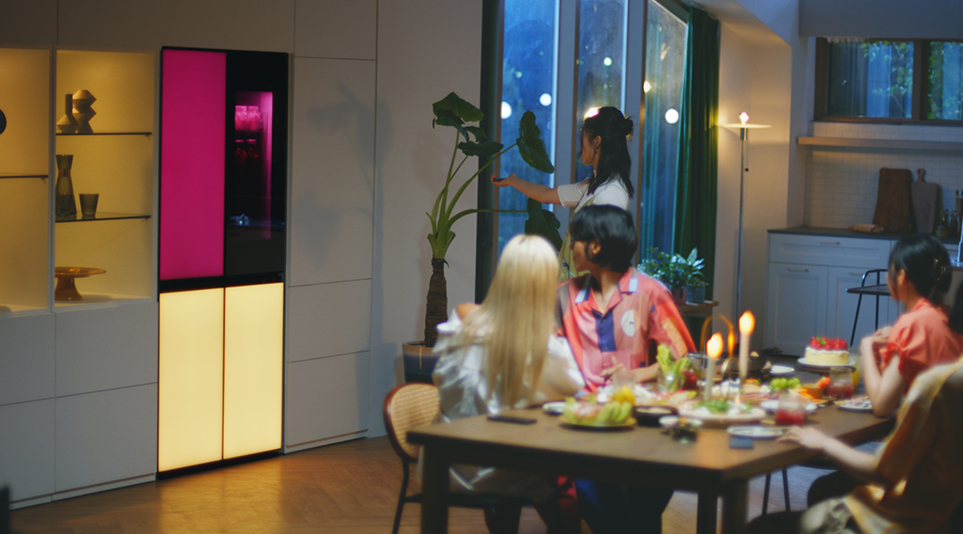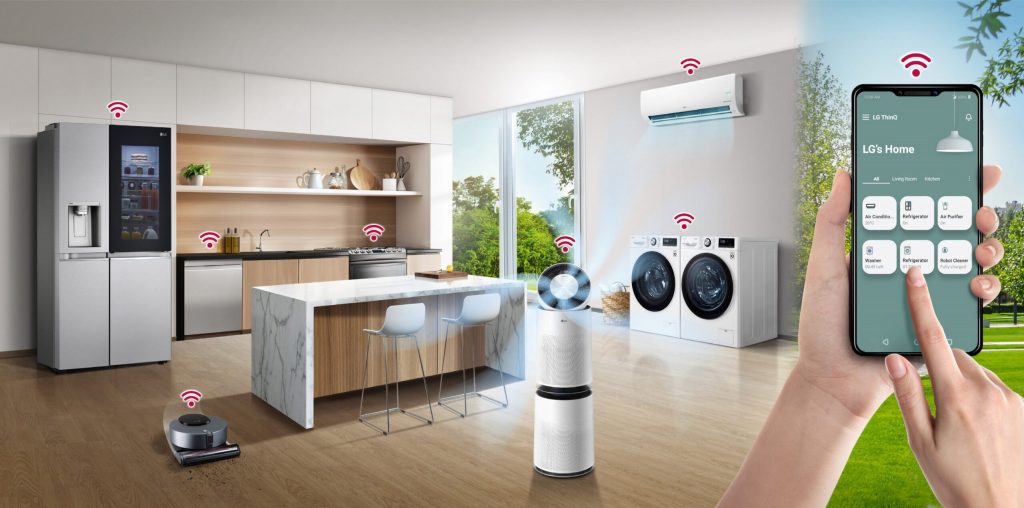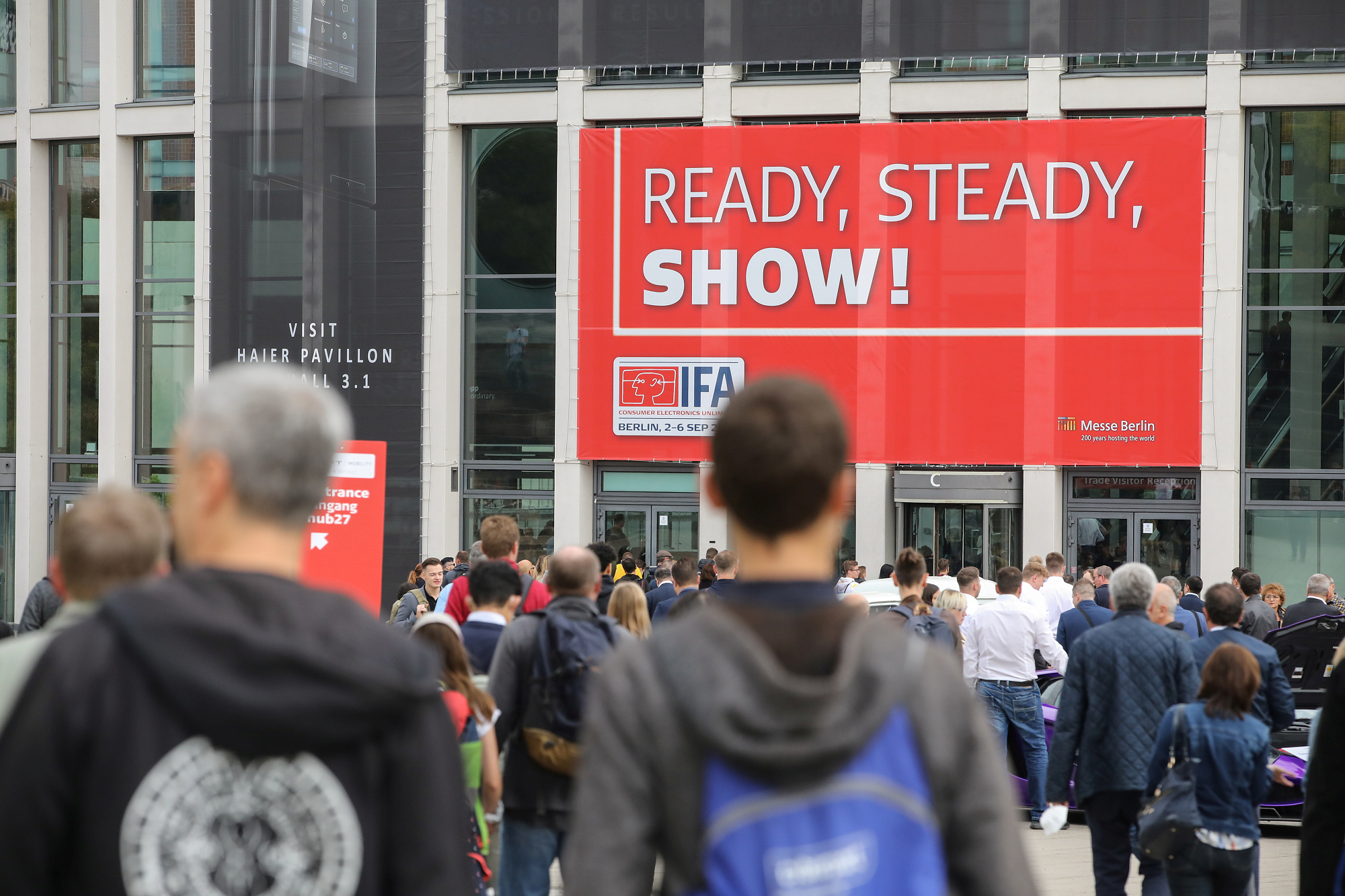After a three-year break due to COVID-19, IFA, Berlin’s international technology and industrial trade fair, once again gave numerous exhibitors the opportunity this year to present their products and developments in consumer electronics. It became clear that sustainability and energy efficiency, artificial intelligence, and connectivity continue to be the defining trends in the industry. What does it mean specifically for household appliances in the smart home and what role do the three major trends play in home storage systems?
Smart home appliances are energy efficient
Smart home and smart building have long been more than just concepts that make life in your own home as pleasant as possible. In fact, they make an important part of a sustainable way of life. Air heat pumps that start operating when electricity is particularly cheap, dishwashers that adjust water consumption according to how dirty the dishes are, or solar remote controls for smart TVs: manufacturers of these large and small technical devices in the home are focusing more on the energy efficiency factor than ever before.
Such focus, on the one hand, is due to a newly developed awareness of how to deal with the environment and resources in the era of climate crisis. The need for devices that consume as little energy as possible is correspondingly high – without reducing comfort at the same time. On the other hand, rising energy prices mean that consumers are paying much more attention to the energy requirements of household appliances than in the past. To meet such shift in demands, the devices not only automatically adjust the energy consumption to the actual need. They also communicate it transparently to the users: energy consumption data from the heating, washing machine and refrigerator can be conveniently called up in real time via an app. Speaking of automation: the development here is far from over. For example, there are already considerations that in the future, refrigerators will switch off at night without affecting the quality of the food inside. Here, too, the goal is minimum energy consumption with maximum comfort.

Artificial intelligence: washing machines and ovens make their own decisions
For household appliances to work as energy-efficiently as possible, they must be intelligent. Accordingly, the topic of artificial intelligence was omnipresent at IFA 2022. Smart heaters, washing machines and ovens show how AI combines sustainability and comfort. Heating systems that come on and off at a certain time are sustainable, but not equally intelligent. The intelligent ones are those that detect via sensors that no resident is present and then regulate the temperature. Smart washing machines identify the materials and surfaces of shirts and trousers. You then select the gentlest program and determine the optimal dosage of detergent. Some machines are filled with detergent from a tank, which you can then use over several wash cycles – with exactly the amount that the laundry needs according to the degree of dirt.
One of the great strengths of artificial intelligence is that it learns over time. For instance, a look into the oven shows this: AI-supported devices adapt to the taste of the user. If the user always wants his rolls to be particularly crispy, the oven remembers how long it has to bake for it. The optimal baking time for individual taste does not have to be determined by humans, as the device defines it itself.

IFA trend: More convenience through networked household appliances
Not new, but all the more important and still a trend, is the topic of connectivity and networking in the smart home. By connecting to apps, the user can find out via their smartphone how high the current energy consumption of the heating is or what is in their fridge. An integrated camera provides information about this – a particularly helpful function if you forgot which products you need between the supermarket and your work. But the connectivity goes even further, because – as the manufacturers made clear at the IFA – it takes place between the devices themselves as well. When the refrigerator display announces that the washing machine in the basement has finished washing, the connection between the devices increases the comfort of living. Voice control of the various machines via assistants such as Alexa and Siri have long been established. What is new, however, is that increasingly more devices from different manufacturers can be operated under a single platform across systems without any problems.
Home energy storage makes green electricity usable at any time
The perfect combination for protecting the environment in a smart home is high energy efficiency and green electricity from a solar system. The challenge for the solar system here: the typical household has the highest energy requirements in the mornings and evenings because that is when the oven, TV or washing machine are in operation. However, the sun usually shines at midday, at a time when little energy is required in the house. The excess yield flows back into the grid. The situation is different with a home storage system: the self-generated electricity can be stored and used flexibly at a later point in time. This ensures a stable energy supply, increases independence, reduces electricity costs and is sustainable.
The new high-voltage system RESU FLEX from LG Energy Solution consists of a control unit and at least two battery modules, which can be expanded at various stages of expansion up to a storage capacity of 17.2 kWh. The modular structure offers maximum flexibility and individual customization. Similar to other devices in the smart home, the user benefits from the close connectivity to the home storage system. The status as well as the charging and discharging performance of the system are monitored in real time via app, and commissioning as well as updates can also be carried out via the mobile application. Access for service providers and installers is also possible.

Simple conclusion: a home storage system is the best prerequisite for operating all the smart household appliances sustainably


